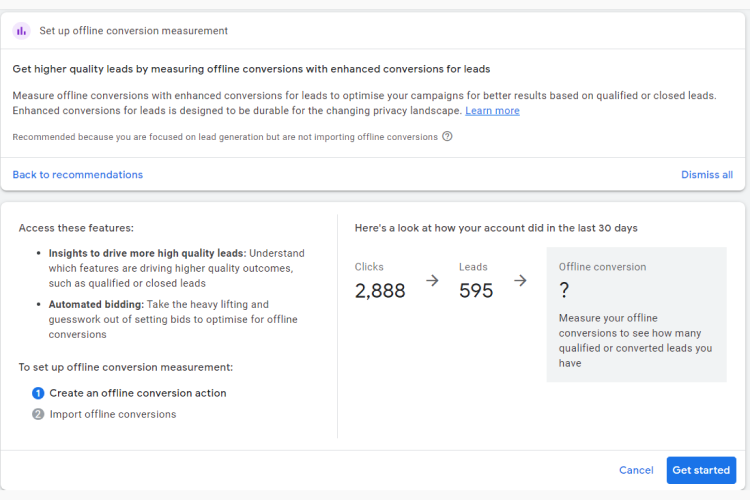
In the ever-changing landscape of digital marketing, staying ahead of the competition can be a challenge. This article will outline an effective strategy to help your real estate PPC account grow profitably—providing Google's algorithm with data about qualified leads and sales—eliminating wasteful clicks that don't convert into leads or leads that fail to result in closed deals.
Discovering what leads led to close deals is no longer a guesswork game. By tracking offline conversions, you can unlock invaluable insights that tell which campaigns and keywords bring in leads with real dollars attached!
For instance, keywords like 'how much is my house worth' or 'instant house valuations' may generate plenty of leads but no tangible revenue - meaning your efforts (and budget) are wasted!
By measuring your offline conversions, you can compare which ad copy or landing page is more effective in driving fast sales from motivated leads. You can then use this data to make necessary changes to improve conversion rates.
The second benefit of offline conversion tracking is that it helps Google AI learn more about your best leads so it can find more motivated sellers like them.
As Google's AI gets smarter, it will start putting your ads in front of the most qualified leads, resulting in higher ROI from your real estate PPC campaigns.
So what is the difference between online and offline conversions?
Online conversions are actions that visitors of your website do online while browsing the site. An example of a conversion is a phone call from an advertisement. Another example is a form submission. Both of these are leads.
Offline conversions are milestones that happen after users give their contact information to you. Based on these milestones, marketers typically qualify leads as marketing-qualified leads (MQL) and sales-qualified leads (SQL).

In a real state business for example, MQLs are people who own a house and want to sell it. SQLs are homeowners who, apart from being MQLs already, fulfil additional criteria specific to any given business. Depending on how your marketing funnel looks, you can classify SQLs as leads who agreed to the appointment or have accepted your offer.
Once the contract terms are agreed upon, and money changes hands, the deal is done. Just like with marketing qualified leads (MQLs) and sales qualified leads (SQLs), real estate investors need to provide this information to Google. By doing so, they're telling its AI to find sellers like the ones who sold their houses to them.
To start, you must track your leads from online form submissions as well as phone calls. For the latter, you will need to use third-party software that captures a unique advertising ID.
To capture advertising IDs for form submissions, you simply create a hidden field in your form. This ID is then passed along to your CRM automatically with the contact details of the converted website visitor.
When the lead's status changes—based on advertising ID, which is a unique identifier— Google then automatically imports this information as an offline conversion and hooray, you are all set.

Offline conversion tracking is essential for real estate investors looking to improve the quality of their leads and maximize ROI from their PPC campaigns. With this data, Google's AI can better understand which leads are most likely to convert into close deals.
By providing Google with offline conversion data, real estate investors will be able to optimize their campaigns and increase sales while eliminating wasteful clicks and reducing costs. So don't wait any longer—start tracking your offline conversions today!